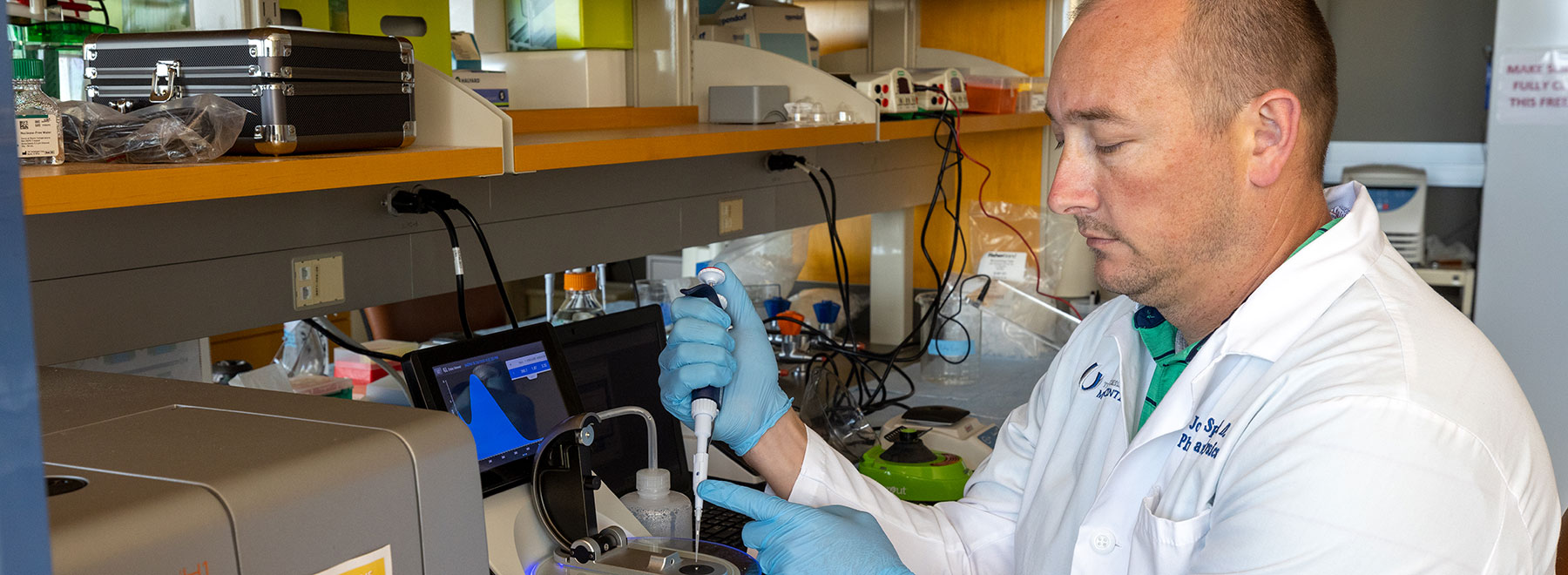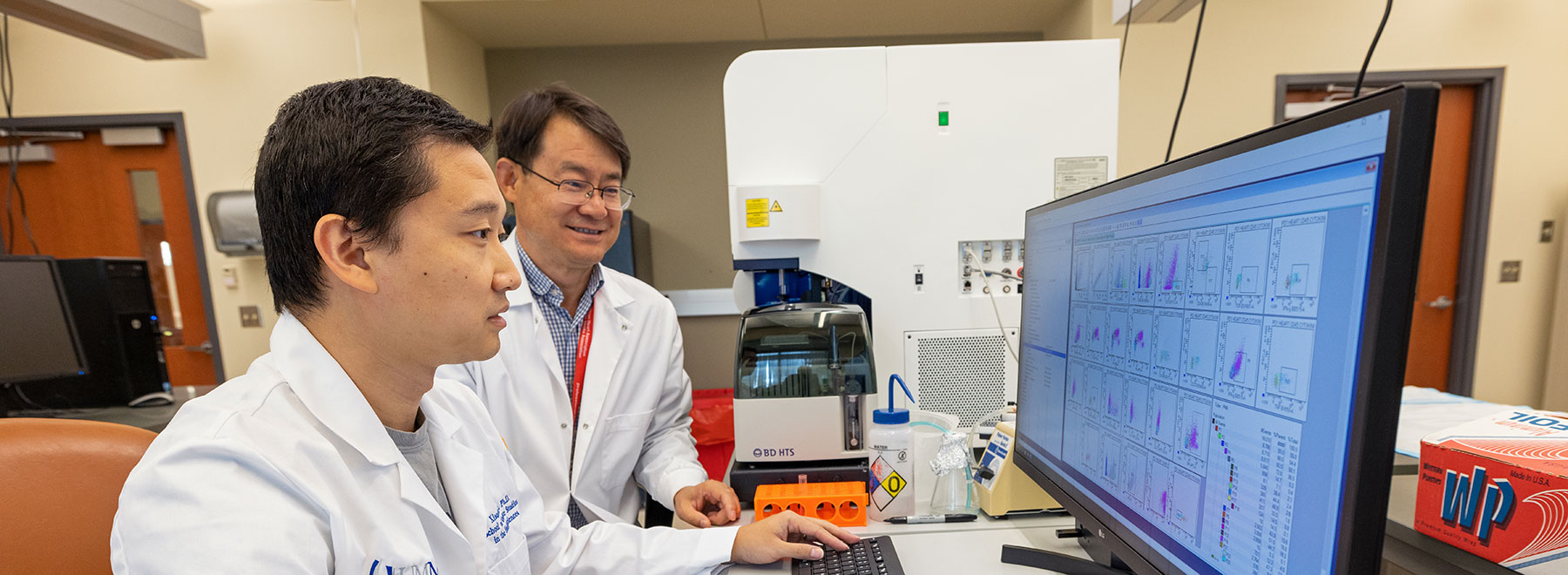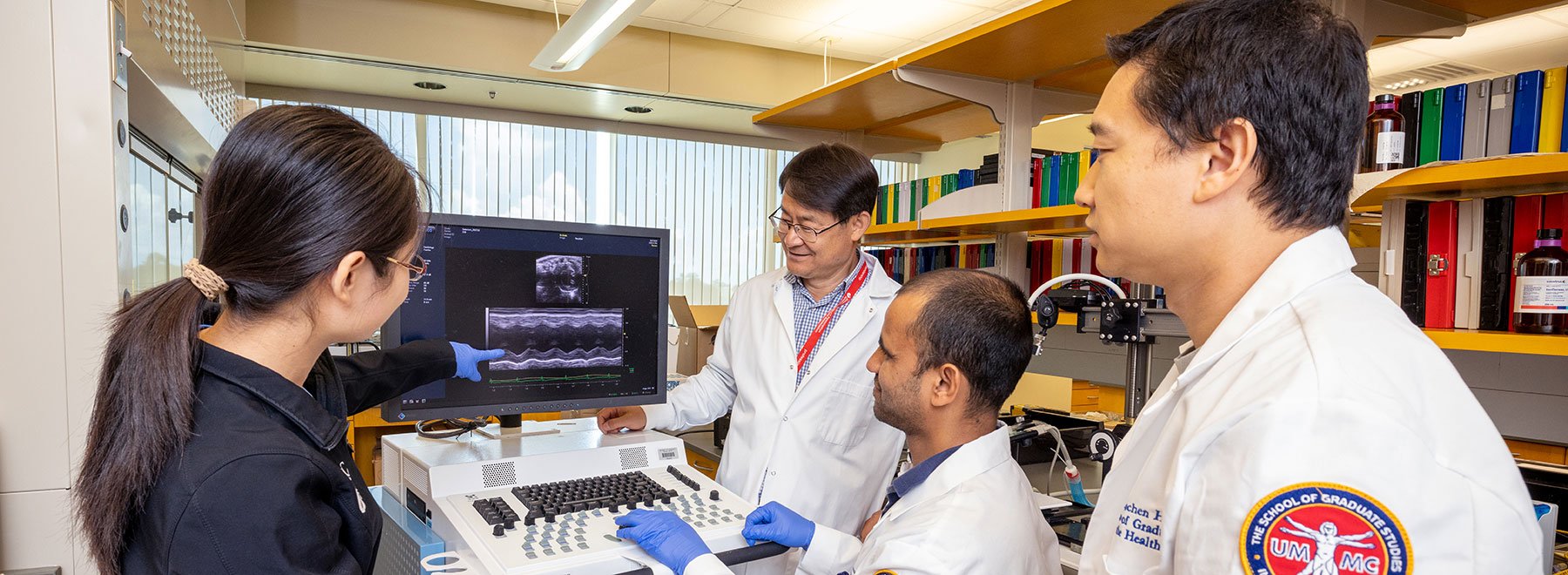


Mississippi Center for Obesity Research
Mississippi Center for Obesity Research
The Mississippi Center for Obesity Research, located at the University of Mississippi Medical Center, is at the forefront our state's efforts to develop a better understanding of the science underlying obesity and to translate discoveries into specific prevention and treatment methods for obesity and related conditions in adults and children.
MCOR is also the centerpiece of an aggressive, coordinated strategy to bring together researchers, health-care providers, state and local governments, business leaders and community groups to provide solutions to the obesity epidemic in Mississippi.
Mission: The MCOR is dedicated to improving lives through discovery, innovation, education, improved patient care and prevention of obesity and related disorders.
Vision: Healthier and more prosperous lives for all Mississippians.
Goals/Objectives/Actions: The mission and vision of of the MCOR will be achieved by;
- bringing together a multidisciplinary, synergistic team of basic, clinical and population scientists in nutrition, wellness, obesity, diabetes, and related biomedical research;
- fostering excellence in nutrition, wellness, and obesity related research at UMMC;
- translating results from basic, clinical and population research to improved nutrition, wellness, and prevention and treatment strategies for obesity and related metabolic disorders;
- promoting the education of researchers, health care professionals, and the general public in the area of nutrition, wellness, obesity and related metabolic disorders;
- serving as an educational center to train the next generation of researchers and clinicians;
- developing resources to enhance research, education and clinical services of the MCOR;
- utilizing the resources of the MCOR to improve nutrition and wellness and reduce the prevalence of obesity and related disorders in Mississippi;
- stimulating economic growth in Mississippi by creating jobs and by improving health and overall productivity of Mississippians.
The MCOR, working with other state institutions, business leaders, local and state government leaders, will serve as a nexus for our state’s efforts to develop a better understanding of the science underlying nutrition, wellness and obesity, and to translate discoveries into improved prevention and treatment strategies for obesity and related conditions, especially hypertension, in adults and children.
Why is UMMC leading this effort?
As the state's only academic health science center, UMMC shares the responsibility to address this challenge. The prevalence of obesity in Mississippi makes the state a living laboratory for research on obesity and related metabolic and cardiovascular diseases. UMMC has an established base of scientists and physicians who have been studying obesity and the negative health effects that flow from it, especially the disproportionate effect obesity has on minority populations.
Obesity has become the most important threat to the health of Mississippians and if left unchecked will overwhelm our health-care system. Without action, what is now a ripple effect of negative health consequences will become a tidal wave of disease, disability and premature death.
We recognize the problem. We have a strategy to address it. What we need is the collective will to respond to this quiet crisis. Please join us.
The Mississippi Center for Obesity Research (MCOR) will:
- Assemble a strong, multidisciplinary team of basic, clinical and population scientists in obesity, diabetes and related biomedical research.
- Translate results from basic research into programs that prevent and treat obesity-related diseases.
- Educate and train the next generation of researchers and clinicians.
- Equip health-care professionals, teachers, community leaders and the general public with the knowledge to help prevent obesity.
- Stimulate economic growth by cutting costs of treating obesity and related diseases and creating a healthier work force for today and tomorrow.


